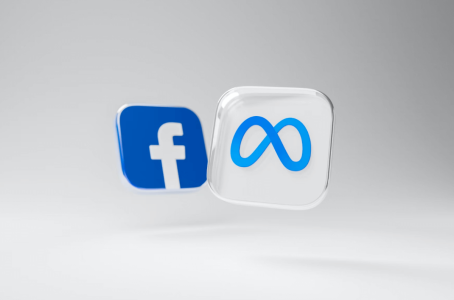Facebook's parent company, Meta, settles billion-dollar class-action lawsuit — is your data really safe?
- Replies 7
Members, if you used Facebook between May 24, 2007, and December 22, 2022, you’ll want to pay attention!
It turns out, Facebook's parent company, Meta, might have put your privacy at risk.
Over the years, Meta has been hit with a bunch of lawsuits from Facebook users. The users all claimed that their data was made available to third parties without their permission.
These lawsuits were combined into one class-action lawsuit, which is an overly-complicated way of saying a lot of people sued Meta at once.

According to the lawsuit, Facebook let third parties access not only users' data but also their friends' data. And they didn't do enough to make sure these third parties followed privacy rules.
One major example of this was the Cambridge Analytica scandal, a data analytics firm that worked with Donald Trump's presidential campaign. They gained access to Facebook users' data, and people were not happy about it.
In 2019, some users sued Facebook because they believed that Facebook didn't just share their basic information, like their age and gender, but also things like their photos, videos they made, videos they watched, and even the words in their private messages.
Fast forward to August 2022, and a settlement was finally reached between the parties. But that wasn't the end of it – negotiations went on for months until December 22, when the plaintiffs filed a motion asking the court to approve the settlement.
According to Derek Loeser and Lesley Weaver from the law firm Keller Rohrback LLP, who represented the plaintiffs, this settlement is a big deal. They said in a statement that this settlement is 'historic' and will provide 'meaningful relief' to the people who were a part of the case.
The court held a hearing on March 2, 2023, to decide whether or not to approve the settlement. And on March 29, 2023, the court granted preliminary approval. So things are moving forward.

Meta has decided to settle the class action lawsuit, although they deny any wrongdoing or liability. However, this is standardl when it comes to settling a lawsuit.
As part of the settlement, Meta has agreed to pay a total of US$725 million (around AU$ 1.076 billion) to the users who were affected.
However, it's important to note that this total includes legal and administrative fees, so the actual amount that users will likely be less. It all depends on how many people submitted eligible claims.
But even if it's not the full amount, it's still money!
If you were a Facebook user in the US anytime between May 24, 2007, and December 22, 2022, you might be eligible to get a piece of that settlement pie. Unfortunately, only those who used Facebook in the US are eligible.
Submit a claim
To claim your share, you'll need to submit a Claim Form that's properly filled out and approved by the Settlement Administrator. The deadline for submitting the form is August 25, 2023, so don't wait too long.
There are a few ways you can submit your claim - online, by mail, or by calling the Settlement Administrator to request a paper copy of the form.
But, here's the catch: if you do submit a claim and it gets approved, you'll be giving up the right to sue Meta in a separate lawsuit regarding the same legal claims or factual allegations that this settlement resolves.
Opt out of the settlement
If you're not interested in receiving any payment from the Settlement, you have the option to opt-out. This means you won't get any money, but you'll retain the right to sue, continue to sue, or join another lawsuit against the Defendant related to the legal claims and factual allegations resolved by this Settlement.
You'll need to hire your own legal counsel at your own expense if you choose this option.
Object to the settlement and/or attend a hearing
Alternatively, you can also choose to object to the Settlement by writing to the Court and explaining why you're not in favour of it. You can even request permission to speak about your objection at the Final Approval Hearing. If you do object, you can still file a claim for payment.
Do nothing
If you don't take any action and don't opt out of the Settlement, you'll automatically be considered part of it.
But keep in mind that if you do nothing, you won't receive any payment from the Settlement, and you'll give up the right to sue, continue to sue, or join another lawsuit against the Defendant related to the legal claims or factual allegations resolved by this Settlement. So make sure to weigh your options carefully!
If you'd like more information, feel free to visit the website set up for the class action settlement here at this link.

The settlement of the class-action lawsuit against Meta raises important questions about privacy and online security.
How do we ensure our personal data is protected when using social media sites? How do we hold these companies accountable when they fail to safeguard our information? And ultimately, what is the true cost of using these platforms?

As more people become aware of the ways in which their personal data is being used and shared, it's important to think about what we can do to protect ourselves and demand greater transparency from these companies.
So, members, what are your thoughts on this issue? Does the settlement make you feel more or less secure about using social media? Share them with us in the comments below!
It turns out, Facebook's parent company, Meta, might have put your privacy at risk.
Over the years, Meta has been hit with a bunch of lawsuits from Facebook users. The users all claimed that their data was made available to third parties without their permission.
These lawsuits were combined into one class-action lawsuit, which is an overly-complicated way of saying a lot of people sued Meta at once.

Meta has settled a lawsuit over privacy issues with how it handled user data. Credit: Unsplash/Dima Solomin.
According to the lawsuit, Facebook let third parties access not only users' data but also their friends' data. And they didn't do enough to make sure these third parties followed privacy rules.
One major example of this was the Cambridge Analytica scandal, a data analytics firm that worked with Donald Trump's presidential campaign. They gained access to Facebook users' data, and people were not happy about it.
In 2019, some users sued Facebook because they believed that Facebook didn't just share their basic information, like their age and gender, but also things like their photos, videos they made, videos they watched, and even the words in their private messages.
Fast forward to August 2022, and a settlement was finally reached between the parties. But that wasn't the end of it – negotiations went on for months until December 22, when the plaintiffs filed a motion asking the court to approve the settlement.
According to Derek Loeser and Lesley Weaver from the law firm Keller Rohrback LLP, who represented the plaintiffs, this settlement is a big deal. They said in a statement that this settlement is 'historic' and will provide 'meaningful relief' to the people who were a part of the case.
The court held a hearing on March 2, 2023, to decide whether or not to approve the settlement. And on March 29, 2023, the court granted preliminary approval. So things are moving forward.

Facebook had numerous lawsuits filed against it over various privacy allegations. Credit: Unsplash/Solen Feyissa.
Meta has decided to settle the class action lawsuit, although they deny any wrongdoing or liability. However, this is standardl when it comes to settling a lawsuit.
As part of the settlement, Meta has agreed to pay a total of US$725 million (around AU$ 1.076 billion) to the users who were affected.
However, it's important to note that this total includes legal and administrative fees, so the actual amount that users will likely be less. It all depends on how many people submitted eligible claims.
But even if it's not the full amount, it's still money!
If you were a Facebook user in the US anytime between May 24, 2007, and December 22, 2022, you might be eligible to get a piece of that settlement pie. Unfortunately, only those who used Facebook in the US are eligible.
Submit a claim
To claim your share, you'll need to submit a Claim Form that's properly filled out and approved by the Settlement Administrator. The deadline for submitting the form is August 25, 2023, so don't wait too long.
There are a few ways you can submit your claim - online, by mail, or by calling the Settlement Administrator to request a paper copy of the form.
But, here's the catch: if you do submit a claim and it gets approved, you'll be giving up the right to sue Meta in a separate lawsuit regarding the same legal claims or factual allegations that this settlement resolves.
Opt out of the settlement
If you're not interested in receiving any payment from the Settlement, you have the option to opt-out. This means you won't get any money, but you'll retain the right to sue, continue to sue, or join another lawsuit against the Defendant related to the legal claims and factual allegations resolved by this Settlement.
You'll need to hire your own legal counsel at your own expense if you choose this option.
Object to the settlement and/or attend a hearing
Alternatively, you can also choose to object to the Settlement by writing to the Court and explaining why you're not in favour of it. You can even request permission to speak about your objection at the Final Approval Hearing. If you do object, you can still file a claim for payment.
Do nothing
If you don't take any action and don't opt out of the Settlement, you'll automatically be considered part of it.
But keep in mind that if you do nothing, you won't receive any payment from the Settlement, and you'll give up the right to sue, continue to sue, or join another lawsuit against the Defendant related to the legal claims or factual allegations resolved by this Settlement. So make sure to weigh your options carefully!
If you'd like more information, feel free to visit the website set up for the class action settlement here at this link.
Key Takeaways
- Meta (previously known as Facebook) has settled a class-action lawsuit for US$725 million (around AU$ 1.076 billion), filed by Facebook users between May 2007 and December 2022.
- The lawsuit accused Facebook of allowing third-party access to users' data without permission.
- Eligible users have until August 25, 2023, to submit a claim form and receive a portion of the settlement, or they can opt-out and retain their right to sue Facebook.
The settlement of the class-action lawsuit against Meta raises important questions about privacy and online security.
How do we ensure our personal data is protected when using social media sites? How do we hold these companies accountable when they fail to safeguard our information? And ultimately, what is the true cost of using these platforms?

Meta's settlement of the class-action lawsuit brings up significant concerns regarding online security and privacy. Credit: Unsplash/Firmbee.com.
As more people become aware of the ways in which their personal data is being used and shared, it's important to think about what we can do to protect ourselves and demand greater transparency from these companies.
So, members, what are your thoughts on this issue? Does the settlement make you feel more or less secure about using social media? Share them with us in the comments below!








